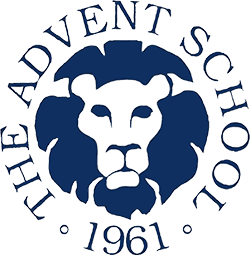
The Reggio Emilia approach at Advent.
In Advent’s Reggio-inspired classrooms, educators are engaged in research and experimentation with the children and about the community of learners.
Teachers are considered researchers as they investigate what a particular group of children is trying to understand, observe how they relate to each other and their world, and decide how to support that learning further. It is an intentional process that emphasizes the natural capabilities of children and the interconnectivity of learning.
Principles of the Reggio Emilia Approach inspire all faculty at The Advent School. There is a shift in the curriculum from our pre-kindergarten Early Childhood Center (ECC) and Kindergarten classrooms, which relies on an emergent curriculum influenced by the student community, known as emergent curriculum. The curriculum is guided by an overarching theme connected to social justice principles at each grade level in First through Sixth Grades. Within these themes, student questions and interests guide teachers as they design projects and investigations.
Background on the Reggio Emilia philosophy
The schools of Reggio Emilia, Italy, inspire the Advent School. The citizens of Reggio Emilia, Italy, developed a unique approach to education in response to their experience with fascism during World War II. The Reggio Emilia approach is "...an educational philosophy based on the image of a child with strong potentialities for development and a subject with rights, who learns through the hundred languages belonging to all human beings, and grows in relations with others." (Source)
Only schools in Reggio Emilia can be called “Reggio Emilia schools.” Advent is a Reggio-inspired school because we apply the Reggio philosophy in our classrooms.




